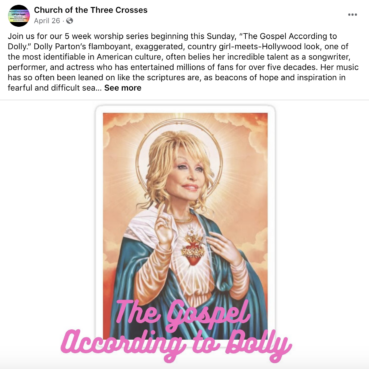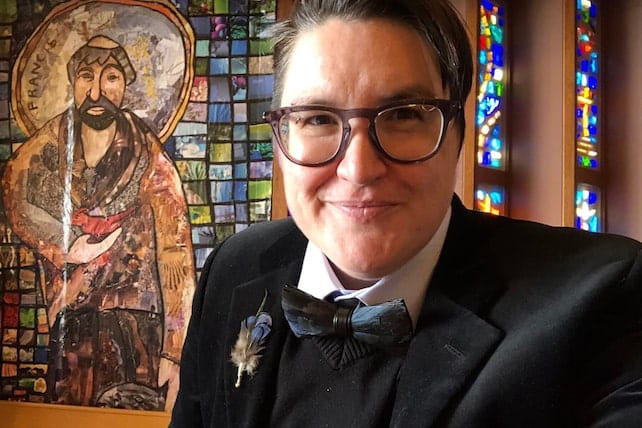
We have all heard the stats. The ones that say anywhere from 60–80% of our kids will walk away from their faith. Some go even higher. It’s a stat that causes us to stop in our tracks, grieve, and ask ourselves how we can sow seeds to change this.
Alone, there’s nothing I can do within my own strength—but God. We serve a God who hears our prayers and who loves our kids more than we ever could. We must follow His lead.
In ministry to children—whether you’re a pastor, staff, volunteer, parent, or church member—our main goal is to help kids know, love, and follow Jesus. Our desire is to instill faith through relationship that reflects our Savior and His unwavering love for us. We collectively want to help children understand who they are in Christ and where they fit in God’s Big Story.
This can feel like a big feat in and of itself—one that we can’t do alone. That is true.
And passing along wonder-filled faith seems to feel even more daunting—especially when we ourselves are out-of-sync, frustrated, burnt out, or maybe even questioning what God has for us. Especially when we remember the stats.
But I’m here to encourage you. We can do it with the Lord leading, as we walk our faith journeys with one other.
Wonder-Filled Faith
A wonder-filled faith is not one without questions. Rather, it’s one that takes the questions, ideas, and curiosity God gives children and allows them to express those as we look at Scripture.
It’s about being captivated by a God who brings blossoms in spring, a God who spoke and light appeared, a God who loved us so much that He gave His only Son. It’s about trusting God in the hard seasons and shouting His faithfulness all along the way.
Wonder-filled faith is about the childlike faith we were never meant to outgrow.
But how do we go about this? Well, we can do a few things to set our ministries on the right path.
We first need to rally together, building a strong foundation so that no matter where our children go in the church, they are seeing the same truth being modeled before them.
Creating Guideposts for Sharing Scripture with Kids
One place to start is by establishing guideposts for how we frame stories from Scripture for kids. Here are some questions for us to think about:
Q: Do we point individual stories from the Bible back to God’s Big Story?
It’s so important that kids are shown the fullness of what God was doing in those stories, so they can more clearly see how He is working in their lives today. It’s essential that every piece of Scripture is tied to the whole of God’s Word. He is the God of our yesterday, today, and tomorrow. That gives us hope!
Q. Do we share how the hope of the gospel is in every story?
God had a plan all along—and sin doesn’t get to keep the headline. What Jesus paid for each of us was always part of the plan, and He deserves all the glory in that! Make sure kids understand that Jesus made the way so that we can choose Him every day.
Q. When we reference the people in these stories, do we show them as real people—not characters or heroes?
Kids need to know that the people we speak about in the Bible are people just like them! People who make mistakes. People who have big dreams. People who believe with their whole hearts. People like you and me. And if God can use those people, if God can use us, He can use our kids!
Q. Are we sharing biblical language?
It’s important that we help kids understand the meaning of Scripture and biblical language within context. It opens a whole new world of how we read the Bible! It helps us align as we add nothing to God’s Word and as we take nothing away.
Q. Do we help children identify who they are in Christ?
Our identity is rooted in the same way our faith is: in being confident of what we hope for in Jesus. We become who we were created to be through claiming our inheritance as image-bearing children of God. The more we look like Jesus, the more we look like the people He made us to be!
These stories and guideposts should be modeled Sunday to Sunday—from church to home and back again. Understanding that this will not be the case in every home, highlights the importance of our church attendees being aligned.
Children in the Light of God’s Wonder
Another place to start in passing a wonder-filled faith is by consistently reaffirming what God says about our children. This is what kids can know God says of them:
- I am known by God.
- I am loved by Jesus.
- I am led by the Holy Spirit.
- I am a child of God. And my life can tell of God’s wonder.
I am known.
God, the Creator of all, knows our kids. He has always known them. He has had them in mind from the very beginning. He made each one in His own image, and each is His masterpiece.
Our children are known by the Creator and that means they belong. Each of them gets to be part of His family.
See Psalm 139:13-14 NIrV.
I am loved.
Jesus’ perfect life, death, resurrection, and promised return are God’s love story. Jesus came to fulfill God’s promises to His children.
Through Jesus, we each can have salvation—yes, including our kids. His love for our children has no beginning and no end, and they get to love Him back. Jesus is God’s love in person. Jesus is the way to God’s love.
Our children are loved by Jesus, and they get to share His love too.
See John 13:34, 35 NIrV.
I am led.
God gives His followers the gift of His Holy Spirit when each chooses to live for Jesus. The Holy Spirit invites us to live in God’s Kingdom—now and not yet. When our kids let the Holy Spirit lead, He strengthens them, and they grow in belief.
As our children learn that God’s way is the best way, their faith grows too. The Holy Spirit helps each one of us be more like Jesus—the people we were made to be.
Because our kids are led by the Holy Spirit, they can follow Him.
See Romans 8:14, 15a NIrV.
I am a child of God.
God’s amazing story changes our stories.
Because God knows each of us, Jesus loves us, and the Holy Spirit leads us, we each get to be a wonder-filled reflection of God to the world. Our children get to know who they truly are and who they were made to be. He delights in them!
Our children are wonders. They get to be part of God’s story, and their lives tell of God’s wonder.
See 1 Peter 2:9 NIrV.
Wonder-Filled Together
The stats are what they are. But God is who He is.
We can have hope that when we lead our kids in God’s way—and when we model faith and shine our light the way we speak it to them—Jesus is free to move in the ways that only He can.
May we have faith that His wonder, His love, and His way will always win. In the now and the not yet, He is working. Amen.
This article reflects on the theological guideposts and core values of Wonder Ink. This customizable digital curriculum and toolkit helps children’s ministry leaders empower volunteers, engage families, and inspire children on their journey of faith.
Wonder Ink is a customizable digital curriculum and toolkit for children’s ministry—helping leaders empower volunteers, engage families, and inspire children on their journey of faith. Designed by ministry leaders, Wonder Ink inspires kids to experience the wonder of God and discover identity in God’s Big Story. Try it today at WonderInk.org!






















